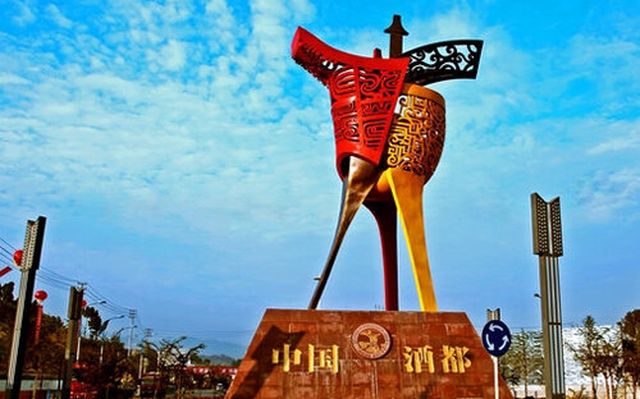There are many places in China that are famous for Baijiu, such as Gujing Gongjiu, Luzhou Laojiu, Shanxi Fenjiu, Guizhou Dongjiu, etc. Baijiu is not only famous for Baijiu, but also for its production area. However, there are only a handful of places with the reputation of “the capital of Baijiu”. The name of the capital of Baijiu is not only the familiar name Baijiu now, but more importantly, it must have the heritage of Baijiu culture, which has been passed down for thousands of years. The name Baijiu is even rarer. Therefore, there are only four places known as the “Capital of Baijiu”. Let’s take a look at where the four major Baijiu capitals in China are!

1. Sichuan Yibin
Yibin, the first city on the Yangtze River, is one of the birthplaces of China’s Baijiu culture. Yibin is also the epitome of China’s Baijiu culture. As early as the Qin Dynasty, Yibin’s Baijiu-konjang had a certain scale. In the Tang and Song Dynasties, Yibin became a big The Southwest Famous Wine Belt has a long history of winemaking, and famous wines have been produced for thousands of years. There are a total of 35 brands in the national Baijiu category that have won the “China Well-known Trademark”. Yibin alone accounted for 7 brands, namely Wuliangye, Wuliangchun, Wuliangol, Jintan Yuye, Huaxiachun, Honglou Mengjiu and Rouyaxu The government is China’s well-deserved “China’s Baijiu Capital”.
2. Fenyang, Shanxi
In the traditional Chinese Baijiu culture, countless people prefer the fragrant Fenjiu. Fenjiu is exquisite in craftsmanship and has a long history. It is known for its rich mouth and sweetness. Shanxi Fenjiu is a typical representative among them. Fenjiu has a long history of about 4,000 years. As early as the Northern and Southern Dynasties, Fenjiu was praised by Emperor Wucheng as the imperial wine of the court and was known as the earliest national wine. Xinghua Village, where Fenjiu was produced, was even known as “the first village of Chinese famous wine.” Today, Fenyang is China’s largest production base of fragrance Baijiu, and it is also the venue of the World Wine Culture Expo. Fenyang is also well-known as the capital of China’s Baijiu.
3. Guizhou Renhuai
In 2004, Guizhou Renhuai was awarded the title of “China’s Baijiu Capital” authorized by the National Diaoyutai State Guesthouse. Relying on the advantages of resources and location, Renhuai established the city with wine and threw the city with wine, became a strong economic city in Guizhou, and became the origin of the national wine Moutai. Moutai has the honor of Chinese political wine, diplomatic wine and friendship wine, and Renhuai is above the scale. The output of Baijiu enterprise Baijiu reached 111,000 tons, accounting for 1.6% and 78% of the national and provincial Baijiu output respectively. It has 506 wineries and the economic contribution of Baijiu to finance accounts for 70% of Renhuai’s total fiscal revenue.
4. Suqian, Jiangsu
Although Suqian is one of the youngest prefecture-level cities in Jiangsu, Suqian is also one of the core production areas of Baijiu with a long history and strong strength in Jiangsu and even the whole country. Baijiu enterprises have made a great contribution to Suqian, which is 1/5 of Suqian’s fiscal revenue. , Has made a huge contribution to the local economy. Judging from the history of winemaking, Yanghe originated in the Sui and Tang Dynasties and prospered in the Ming and Qing Dynasties. Among China’s top ten famous wines, Suqian owns two of them, Shuangkou has treasures to imitate, and Yanghe has blue classics. The unique winemaking environment gives Suqian a clear advantage and is more worthy of the name of China’s Baijiu capital.